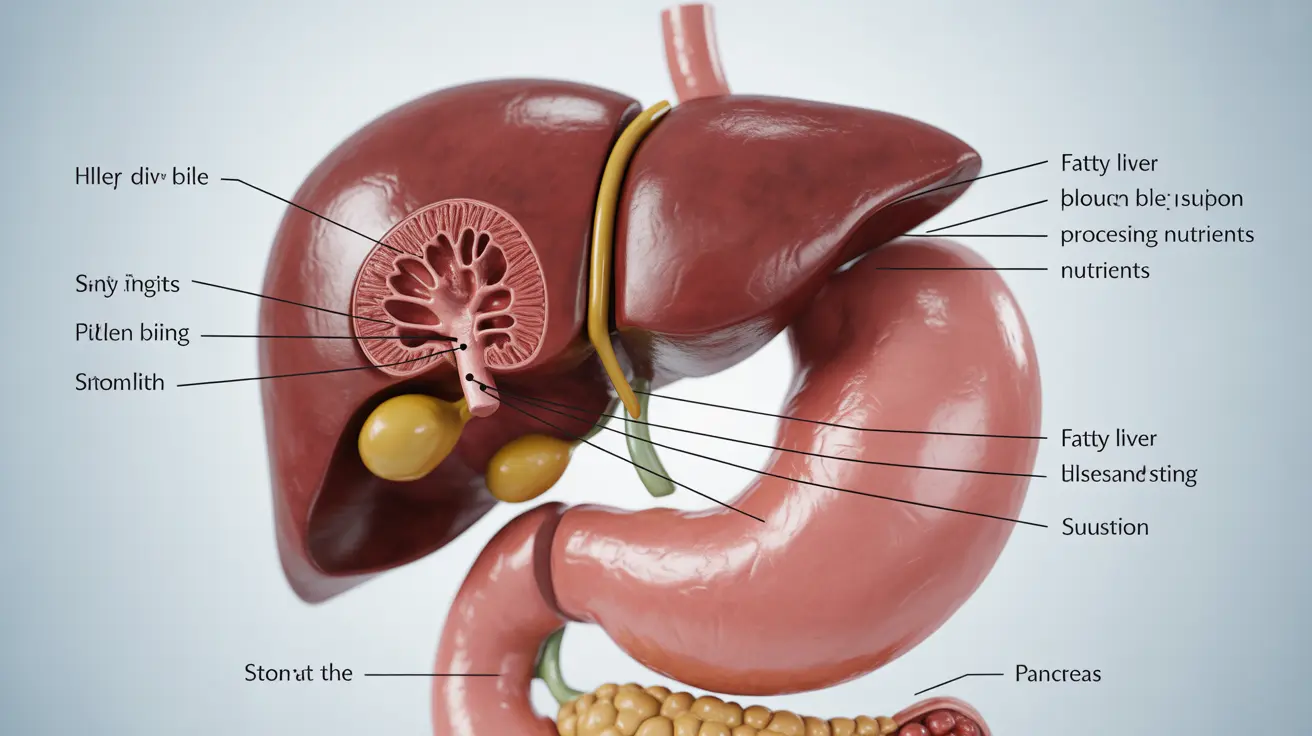Fatty liver disease and digestive symptoms like gas often go hand in hand, leading many patients to wonder about the relationship between these conditions. Understanding how fatty liver disease affects your digestive system can help you better manage your symptoms and improve your overall health.
As a chronic liver condition that affects millions of Americans, fatty liver disease can impact various aspects of digestion and gut health. This comprehensive guide explores the connection between fatty liver and digestive symptoms, particularly focusing on gas and bloating.
How Fatty Liver Disease Affects Your Digestive System
The liver plays a crucial role in digestion by producing bile and processing nutrients from food. When fatty liver disease develops, these functions can become compromised, leading to various digestive issues.
Key ways fatty liver disease impacts digestion include:
- Reduced bile production and quality
- Altered gut bacteria balance
- Compromised nutrient processing
- Inflammation affecting digestive function
The Gas and Bloating Connection
Many people with fatty liver disease experience increased gas and bloating. This occurs because:
- The liver's reduced ability to process fats properly
- Changes in the gut microbiome
- Inflammation affecting digestive efficiency
- Slower digestion of certain foods
Common Digestive Symptoms of Fatty Liver Disease
Besides gas, fatty liver disease can cause several other digestive symptoms that patients should be aware of:
- Abdominal discomfort or pain
- Feeling full quickly when eating
- Nausea or indigestion
- Changes in bowel movements
- Increased sensitivity to fatty foods
Managing Gas and Digestive Symptoms
Several lifestyle modifications can help reduce gas and other digestive symptoms associated with fatty liver disease:
Dietary Changes
Making specific dietary adjustments can significantly improve symptoms:
- Reducing portion sizes
- Limiting fatty and processed foods
- Increasing fiber intake gradually
- Avoiding known gas-producing foods
- Eating slowly and chewing thoroughly
Lifestyle Modifications
Additional lifestyle changes that can help include:
- Regular physical activity
- Maintaining a healthy weight
- Staying hydrated
- Avoiding alcohol
- Practicing stress management techniques
Frequently Asked Questions
Does fatty liver disease cause excessive gas and bloating?
Yes, fatty liver disease can cause excessive gas and bloating. This occurs due to the liver's compromised ability to process fats and changes in gut bacteria balance, which can affect how food is digested and processed in your body.
What are the early symptoms of fatty liver disease related to digestion?
Early digestive symptoms of fatty liver disease often include bloating, gas, abdominal discomfort, and feeling full quickly after eating. Some people may also experience changes in bowel movements and increased sensitivity to fatty foods.
How does fatty liver affect digestion and gut health?
Fatty liver disease affects digestion and gut health by altering bile production, changing gut bacteria composition, and affecting nutrient processing. These changes can lead to various digestive issues and impact overall digestive efficiency.
Can fatty liver disease cause abdominal pain and discomfort?
Yes, fatty liver disease can cause abdominal pain and discomfort, particularly in the upper right portion of the abdomen. This discomfort may be accompanied by bloating, gas, and a feeling of fullness.
What lifestyle changes help reduce gas and other digestive symptoms from fatty liver?
Key lifestyle changes that can help include maintaining a healthy diet low in processed foods and fats, regular exercise, weight management, avoiding alcohol, staying hydrated, and eating smaller, more frequent meals. These changes can improve both liver health and digestive symptoms.




